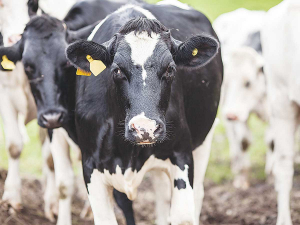NZ Catchment Groups Thrive with ‘Source to Sea’ Approach
The most successful catchment groups in NZ are those that have 'a source to sea' approach.
 MPI are reminding farmers to register their animals with the NAIT scheme after one CEO failed to register 820 animals.
MPI are reminding farmers to register their animals with the NAIT scheme after one CEO failed to register 820 animals.
The chief executive of a large Waikato farm business has copped a $3,600 fine for moving 820 unregistered animals to meat processors.
Chief executive of Lochiel Farmlands Limited, Kim Phillip Robinson, was responsible for the registration of the animals under the National Animal Identification and Tracing (NAIT) scheme.
The farm manages about 3,000 cattle as dry stock with its main operations being as a breeder and finisher of stock.
He was sentenced last week at the Pukekohe District Court.
.
Ministry of Primary Industries regional manager animal welfare and NAIT compliance, Brendon Mikkelsen, says the NAIT system is critical to our ability to respond quickly in the event of biosecurity outbreaks.
"It allows us to track and trace animals that might be moving between farms or to meat processors so we can quickly understand and deal with biosecurity threats which can have a devastating impact on the rural communities and the wider economy.
"Despite previously being reminded of his obligations and being registered as the person in charge of the NAIT animals since 2012 at Lochiel Farmlands Limited, Mr Robinson failed to play his part to protect New Zealand's biosecurity."
Robinson's offending came to light through an analysis of the NAIT database.
He moved 820 unregistered NAIT animals off Lochiel Farmlands Limited to four meat processing facilities between February and early November 2019.
"Most people in charge of animals understand what is at stake and ensure they've registered NAIT animals. For those who don't, our message is that non-compliance will be found and dealth with," says Mikkelsen.
"Whenever farmers are moving their animals to other locations, it's particularly important that they remember their NAIT responsibilities.
"We encourage people to talk to their farm advisors, or make contact with OSPRI or their industry organisations for support.
"MPI as processes in place that will alert NAIT officers if NAIT animals have not been registered - or if they have been moved without this being recorded in the NAIT system. MPI utilises this system every day, not just on moving day," Mikkelsen says.
Robinson was also ordered to pay court costs of $130.
About NAIT
The National Animal Identification and Tracing (NAIT) programme records:
The 5+ A Day Charitable Trust has launched a collection of affordable recipes designed to turn everyday vegetables into seasonal stars.
Jane Mellsopp has been confirmed as the new Government Appointee to the New Zealand Meat Board (NZMB).
To celebrate the tenth anniversary of its annual Good Deeds competition, Rabobank will give away $100,000 to improve rural community hubs, schools, clubrooms, and marae across New Zealand.
Agricultural and veterinary product supplier Shoof International has appointed Michaela Dumper as its new chief executive.
Federated Farmers is celebrating following the Government's announcement that young farmers will be able to use their KiwiSaver funds to buy their first home or farm.
The Meat Industry Association of New Zealand (MIA) today announced that Chief Executive Officer Sirma Karapeeva has resigned from the role.
OPINION: Staying with politics, with less than nine months to go before the general elections, there’s confusion in the Labour…
OPINION: Winston Peters' tirade against the free trade deal stitched with India may not be all political posturing by the…